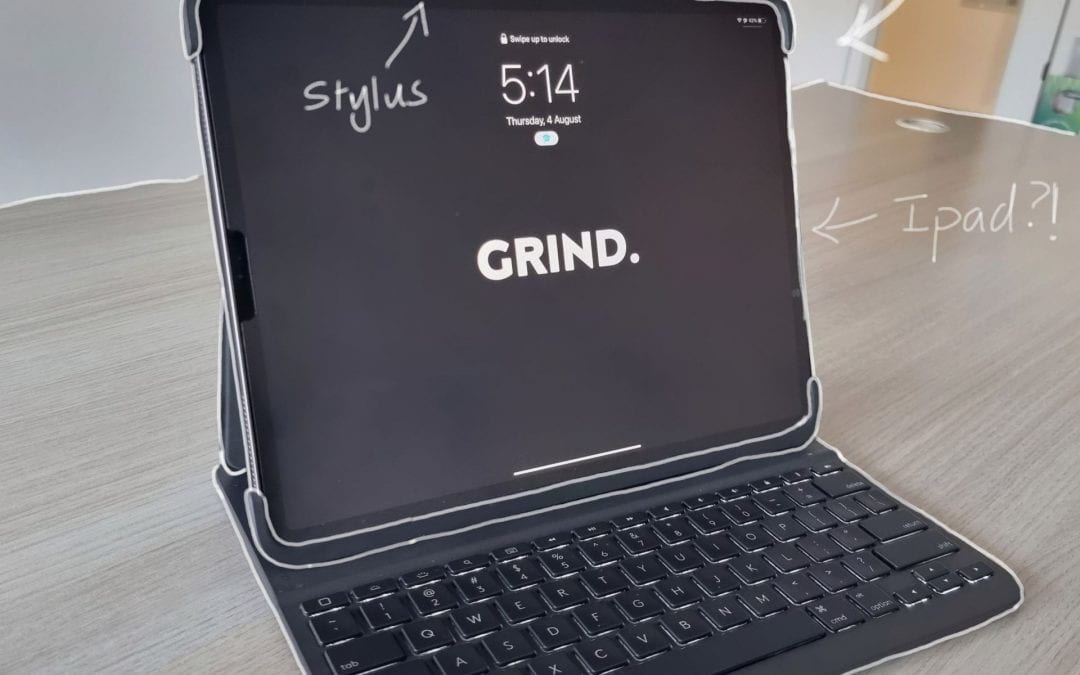
You might have seen your friends and course-mates use their tablets in class. The convenient pen colour switching, the copy-paste feature and the simple task of looking up the relevant pages for the lectures.
But tablets come with a high price tag, so should you get one?
Here are a few questions to ask yourself before pulling the plug:
1. What is your main reason for getting a tablet?
Is it because it will be easier to take notes in class? Or will is it because it will be easier to annotate on lecture slides?
2. Can you afford the tablet and the other essential accessories you will need?
Money is often a touchy subject, especially among university students, but if you are considering getting a tablet, you need to be realistic. You will also need a stylus if you want to take notes using a tablet. If you get one like an iPad, you will have to buy the stylus separately. I also recommend getting a case to protect the tablet.
3. Do you actually need one?
Instead of just regular tablets, many of my friends have a 2-in-1 device, where their laptop supports stylus use. This is often a good alternative when you need both a laptop and a tablet and cannot decide between the two. In this case, this may be better than getting just a tablet.
Pros and Cons of A Tablet
Pro #1: Easier Online exams
When online exams were announced, I thought I would be extremely frustrated because I would have to download the pdf, print it out, sit for the test, check through my answers, scan the document and then pray that the file would upload time. And that is, if you are content with all your answers and there are no last-minute changes.
With a tablet, all you have to do is download the file onto your tablet, write out your exam, export it as a pdf, then email it to yourself (I personally airdrop it to myself because I use an iPad), then upload it onto the exam page. It is easy and efficient. If you have any last-minute changes, you can just edit your existing document and then repeat the process of exporting and uploading.
Con #1: You Cannot Actually Sit For Exams On A Tablet
Although the tablet does help with written exams that you will have to upload onto the exam platform, many of these platforms do not support access to the exams via tablets. For example, Inspera does not support tablet use, so you cannot access the exam at all if you were to use a tablet.
Therefore, if you are deciding between a laptop or a tablet, remember that a laptop is necessary while a tablet is an option for improving your student life.
Pro #2: Convenience and Ease
When you are studying or attending a lecture, you often realise that you may not remember a concept you have learnt previously. With a tablet, you can access all your notes and textbooks with just a few taps with your finger or by just typing them into the search bar. It is more convenient than searching through all your notes and looking for that particular word or concept.
Con 2: Forgot something? Can’t Do Anything…
Suppose your primary purpose for getting a tablet is to write notes and annotate on lecture slides during lectures. In that case, you will not be able to do anything if you forget your necessities like the tablet itself or your stylus.
I once had to run back to the halls to grab the apple pencil I had forgotten. Although I made it in time for lectures, it is something that I never want to happen ever again.
I realise this con maybe 100% due to human error, but it is something to keep in mind. When you forget a pencil or a pen, you can borrow one from a friend, but if you forget your stylus, I doubt anyone will lend you theirs.
Pro 3: All in One Place
With a tablet, you can have everything in one place; your notes, lecture guide, coursebooks, lecture slides, lab guides, past papers etc. It is convenient, and you can be sure that everything is there and available for access at any time. You will not have to worry about misplacing a specific sheet of formulas or your handwritten notes.
Con 3: Dead Devices Are Your Worst Nightmares
Whether you forgot to charge your device or spilt water all over them (which happens more often than you think), if your tablet and stylus are not working during lectures, you might as well show up to class empty-handed. This is because while it’s convenient to have everything on that device, it also means that if your device is not working, you cannot access any of it.
So, do you still want to get a tablet? I have one, and it has changed my study routine significantly. I foresee myself using my tablet for a very long time, which makes it a good investment. Thus, if you are going to get one, think about the quality of the device, how long it will last and what this tablet can do for you. If you feel you will use it for only note-taking and writing, you may not have to get the most technologically advanced one and save a little.
A mindset that I keep in mind when purchasing expensive things is:
A cheap pair of shoes and an expensive one have the same function, but the costly pair tends to be of higher quality and will last longer.
Hope you enjoyed it!
